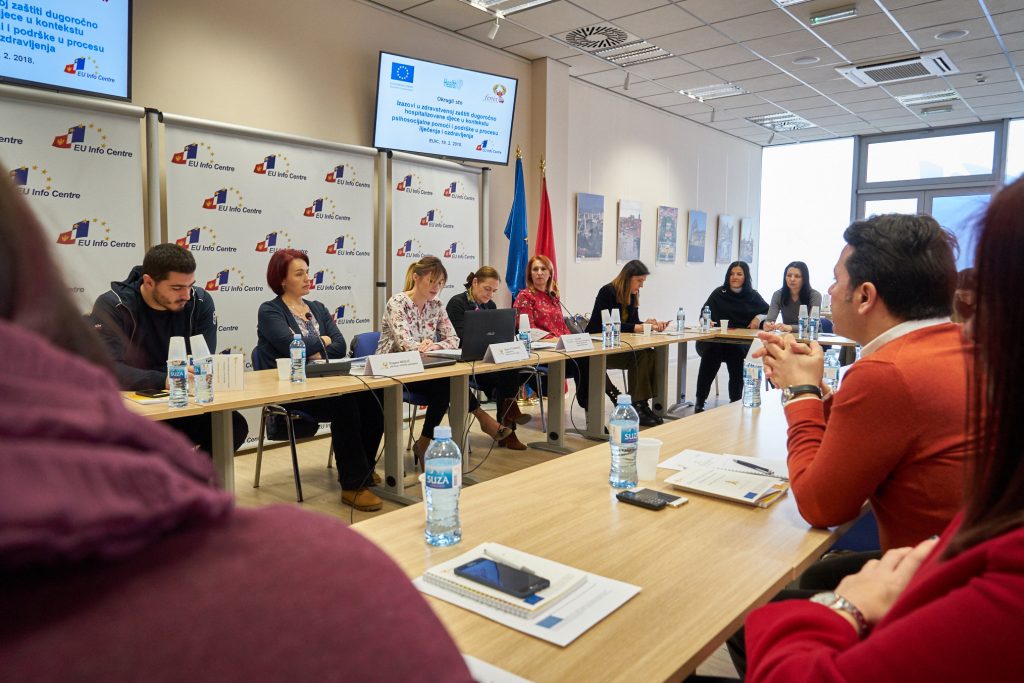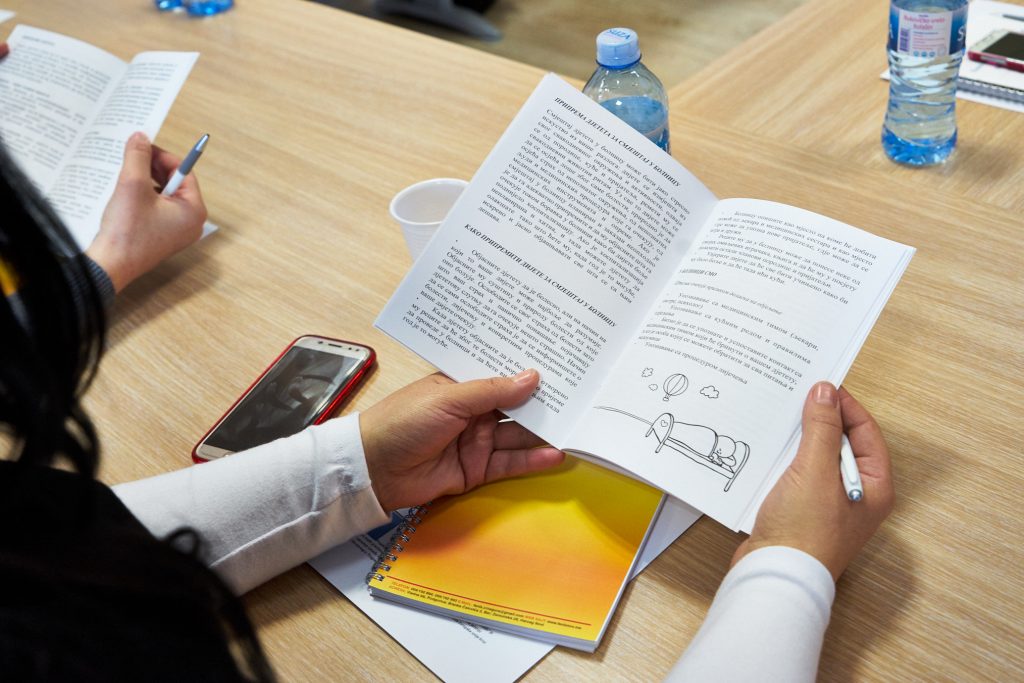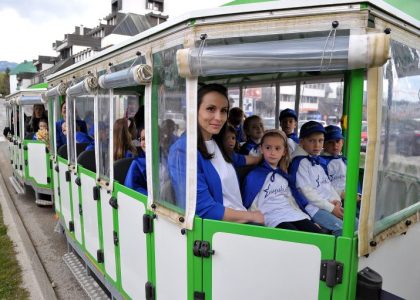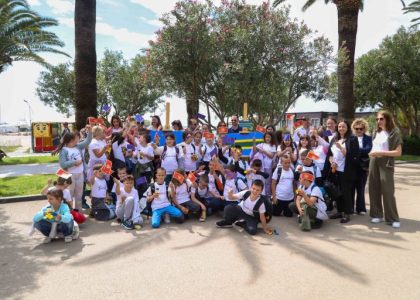Podgorica, 19 February 2018 – Hospitalisation is a traumatic experience for both children and their families. There are things that can make a stay in hospital easier for children and their parents, and health workers can play an important role in this. This is message from the roundtable titled “Challenges in the Health Care of Long-Term Hospitalised Children in the Context of Psychosocial Support and Support in the Process of Healing and Convalescence”, organised by the NGO Phoenix Montenegro within the HealthUp project and held in the EU Info Centre.

In one sentence, the goal of engaging NGOs that deal with the problem of treating hospitalised children could be: “We have a commitment to the future not to harm the hearts and minds of children while treating their illnesses and repairing their broken bones”. Offering care which is targeted towards children and their families is one of the ways in which the potential psychological damage that may be caused by a stay in hospital could be reduced.
“What is care that is focused on children and their families? A redefining of the relationships in health care. The emphasis is on working together with the patients and families of all ages, at all levels of care and in all health institutions,” explained Dijana Stojanović, president of the NGO Phoenix Montenegro
Those who have had experience of treating children with the most severe diseases know that the family is a very important factor in the health and wellbeing of the patient, and that the family can become a key ally in maintaining quality and safety within the health system. Health care that is consistent with the principles of care focused on children and their families implies: protection of children’s rights and fulfilment of children’s psychological, social and development needs during their stay in hospital.
 Phoenix explains that care focused on children and their families leads to a shortening of the length of time a child needs to stay in hospital.
Phoenix explains that care focused on children and their families leads to a shortening of the length of time a child needs to stay in hospital.
“And that is thanks to: a faster recovery time, fewer complications, less use of pain relief, improved and effective communication among health workers, between health workers and children, and health workers and families.”
Pain can be experienced during therapy in the giving of different types of injections, punctures of body cavities, cleansing wounds with antiseptic, stitching up wounds, etc.
“In our society, most of the listed medical procedures are not yet conducted with an analgesic or anaesthesic,” says Stojanovic.
Representatives of parents who have seen their children being treated for severe pain state that the health system in Montenegro, and also in the entire region, should be more humane towards sick children and to their parents and the whole family, but they also pointed out that being treated in one’s own country has many advantages.


